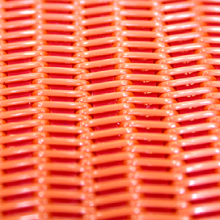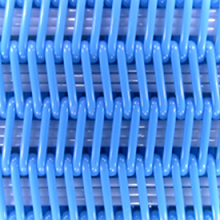Voith Paper in Haaksbergen
Inventor of spiral dryer fabrics
Spiral dryer fabrics are the heart of the paper machine. They play a major role in the process of drying. They are used as a clothing in the dryer section of a paper machine.
We have developed a full series of woven and spiral designs to suit all requirements. We supply dryer fabrics for all paper grades and paper machine settings. The outstanding characteristics of our fabrics reduce the downtime and increase the production efficiency.
Fine spiral design. Download PDF
Advancing the art of dryer fabrics since 1937
Our manufacturing site in Haaksbergen
Our people are our greatest asset. Innovation is our passion.
Our facilitiy is a state-of-the-art manufacturing site.
For further information you can contact us via:
info.haaksbergen@voith.com
Dryer fabrics for papermachines

Spiral dryers for industrial applications

A pioneer in paper making
Paper making has a long tradition at Voith. The first wood grinder for the production of paper from wood fiber was built by Johann Matthäus Voith in 1859.
Papermaking 4.0: Step by step into the digital future
For more than 150 years, the pulse of Voith has been beating for paper: for its production, for its further development.
Generation after generation we have met the ever-changing demands of people and markets, and played a key role in shaping our industry.
Paper for a sustainable world

Voith has invented technologies for waste paper preparation decades ago. Since then, our engineers have continually improved and refined the process. As a result, premium quality tissue can now be produced from 100% recycled paper.
At the moment, the share of recycled fiber is at about 50% worldwide. If the industry succeeds to increase this share to 70%, the rising demand for paper over the forthcoming ten years could be met without using additional virgin fiber. An ambitious plan. But quite realistic with Voith technology:
Green technology


